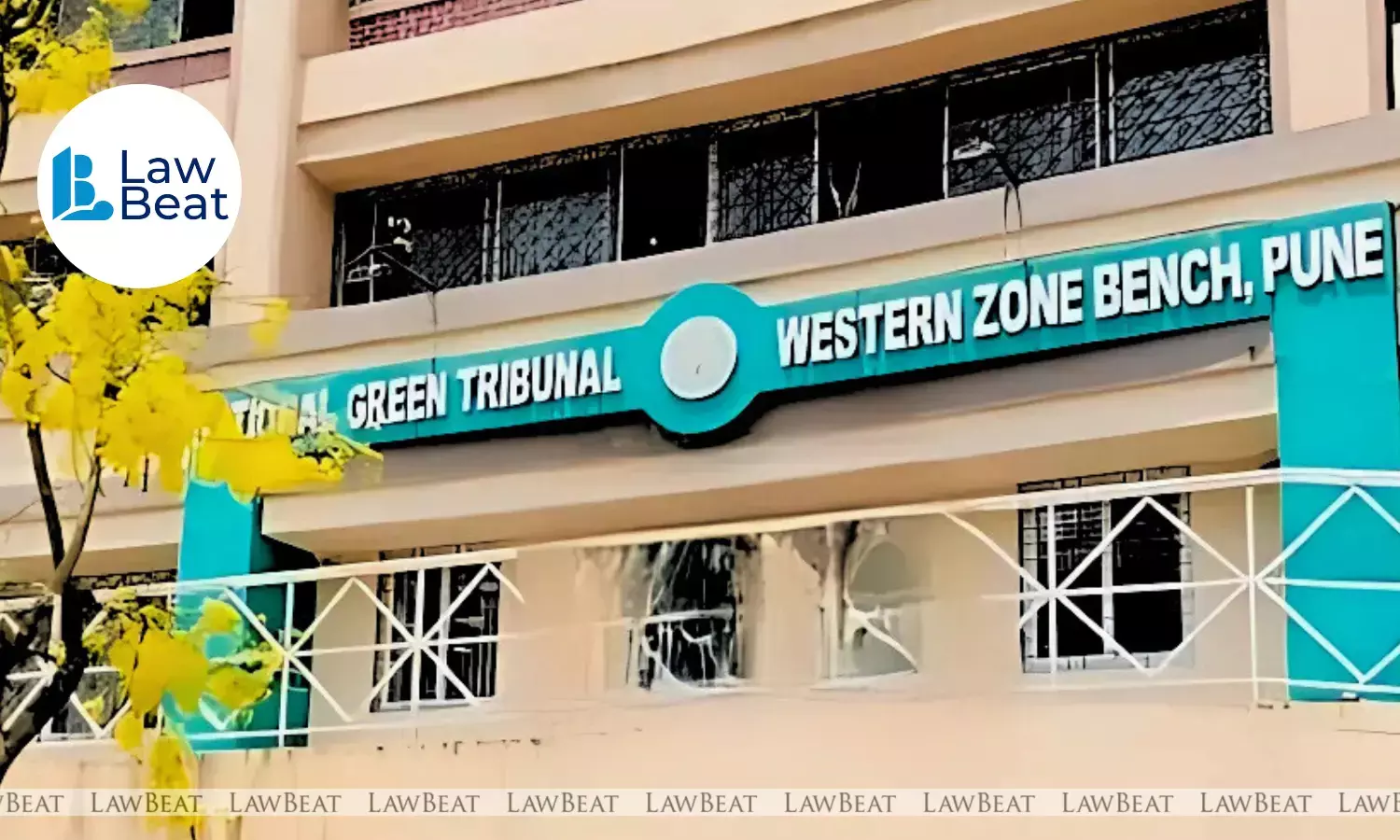NGT Pune Bench Rejects Plea to Terminate Appeal Against GHCL’s Soda Ash Project, Says Right to Appeal Independent

The Tribunal ruled that Section 16 of the NGT Act ensures any aggrieved person an unfettered right to appeal.
The National Green Tribunal (Western Zone Bench, Pune) has declined to dismiss an appeal filed against the Environmental Clearance (EC) granted to GHCL Ltd. for its proposed Light Soda Ash, Dense Soda Ash, and Sodium Bicarbonate manufacturing project at village Bada, Mandvi Taluka, District Kutch, Gujarat.
The Bench observed that under the National Green Tribunal Act, 2010, the right of an “aggrieved person” to challenge an environmental clearance is a substantive statutory entitlement, which cannot be curtailed merely because more than one appeal is filed against the same clearance.
The matter was heard by a three-member Bench comprising Hon’ble Justice Prakash Shrivastava (Chairperson), Hon’ble Justice Dinesh Kumar Singh (Judicial Member), and Hon’ble Dr. Vijay Kulkarni (Expert Member).
The appeal was filed by Go Green Foundation Trust under Section 16(h) of the NGT Act challenging the EC dated 12 December 2024 issued by the Ministry of Environment, Forest and Climate Change (MoEF&CC) in favour of GHCL Ltd.
The project proponent sought dismissal of the appeal by filing I.A. No. 89 of 2025, arguing that the challenge was not maintainable since another appeal, being Appeal No. 19 of 2025, had already been instituted on the same grounds.
Senior Advocate Sanjay Upadhyay, appearing for GHCL, submitted that the filing of successive appeals leads to multiplicity of proceedings and unnecessary delay in implementation of the project. He contended that the appeal was barred by principles analogous to Order II Rule 2 of the Code of Civil Procedure, 1908, which prohibits a plaintiff from splitting causes of action and instituting multiple proceedings.
Reliance was placed on the Supreme Court’s decision in Cuddalore Powergen Corporation Ltd. v. Chemplast Cuddalore Vinyls Ltd. (2025 SCC OnLine SC 82), where successive suits filed by the same party were held impermissible, as well as the earlier decision in Gurubux Singh v. Bhooralal (AIR 1964 SC 1810).
In addition, the project proponent relied on an order of the NGT Central Zone in Kanhaiya Lal Gadri v. MoEF&CC (Appeal No. 13 of 2022), where a second appeal against the same clearance had been dismissed applying the principle of res judicata.
Opposing this plea, counsel for the appellant submitted that the present appeal had in fact been filed prior in time, but was numbered later because of defects noted by the Tribunal’s registry. It was further argued that the appellant had an independent statutory right to challenge the grant of clearance, and such right cannot be taken away merely because another aggrieved party had also chosen to file a separate challenge.
The Tribunal, after hearing the parties, rejected GHCL’s objection. It observed that Section 16 of the NGT Act confers the right of appeal against an order granting environmental clearance upon “any person aggrieved.” This right is independent and cannot be restricted unless specifically barred by law.
The judgments relied upon by the project proponent, the Bench held, were distinguishable, since they involved successive proceedings by the same plaintiff.
In contrast, the present case concerned different appellants exercising their individual statutory rights.
The Tribunal also noted that both appeals had been filed within a short span of time, and the connected appeal had not reached an advanced stage of hearing.
The plea that the appeal was instituted to delay the project was, therefore, without merit.
On this reasoning, the Tribunal held that no ground was made out to dismiss the appeal. However, to avoid duplication of effort, it directed that Appeal No. 26 of 2025 be heard together with connected Appeal No. 19 of 2025.
The Bench also dealt with I.A. No. 52 of 2025, filed by the appellant seeking condonation of a one day delay in filing the appeal.
The explanation given was that the registry of the Tribunal was closed on 11 January 2025, being a second Saturday, and the appeal was filed on 12 January 2025. It was further stated that the appellant had to obtain and analyze over 3,000 pages of supporting documents, including the Environmental Impact Assessment report, which reasonably consumed time.
The Tribunal accepted the explanation as bona fide, holding that the delay was neither deliberate nor mala fide but arose due to genuine circumstances.
The principle that courts and tribunals should adopt a liberal approach in condoning short delays, particularly where substantial rights are involved, was applied. Accordingly, the delay was condoned.
Having rejected GHCL’s plea and allowed the application for condonation, the Tribunal directed that the matter be listed for hearing along with the connected appeal on November 17, 2025, paving the way for substantive consideration of challenges to the environmental clearance granted for the Kutch project.
Case Title: Go Green Foundation Trust v. Union of India & Ors.
Bench: Justice Prakash Shrivastava (Chairperson), Justice Dinesh Kumar Singh (Judicial Member), Dr. Vijay Kulkarni (Expert Member)
Date of Judgment: September 11, 2025
